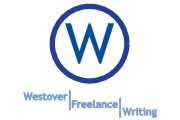
Writer's Block - that frozen up, blank minded state, very similar to a sneeze that won't quite sneeze, in which a writer cannot write. It's real, and we all deal with it sometimes. So, to help my fellow writers get the words flowing again, here are five ways to prime the pump and get back to work.
.
.
1. Say 'Bollocks' to the Block!
Honestly, don't even call it writer's block. Don't obsess over it, just get back to work. Most 'Block' is a self-fulfilling prophecy. You hit a rough patch and you call it writer's block. In the process, you give a shape and a name to something that otherwise might not even be a problem.
.
.
2. Take a short break
And I do mean short - try ten minutes, or fifteen. Do something different, whether it's munching on a healthy snack, jogging to the mailbox, dancing like a crazy person to the first song you get on the radio, whatever. Make this a complete break from your routine, not a part of it. The routine is just that - routine. While order and routine are great for dry productivity, they're anathema to creativity. Creativity doesn't require constant chaos, but it does require a sense of freedom and flexibility.
.
.
3. Stop trying to write
This doesn't mean that you decide "Hmmm, the words aren't flowing - let's go to Disneyland!" Instead, shift your focus to another writing-related task. Try brainstorming for a few minutes. Look up a new market online. Straighten up your desk. Set aside the blank page for a moment, but keep working. If you can't be productive, be constructive.
.
.
4. Review and Jot
Review your notes, and while doing so, jot down anything that comes to mind, even if it's just single words. Doodle in the margins. Sketch diagrams that relate to the topic. Write down any questions that pop up. The idea is to get your synapses firing again in relation to your work.
.
.
5. Write Through
Lurking in the shadows of Writer's Block, there is often an unrealistic expectation. Maybe it's the desire to write something brilliant, when mediocre is all you can manage at the moment. Maybe it's an unrealistic deadline (self imposed or otherwise). Maybe you've got some unrelated idea that's been gnawing at the back of your mind for three days, but you won't listen to it, because you're trying to focus. Whatever it is, write it. Don't even consider this a draft, that'll come later. Just write whatever's on your mind.














